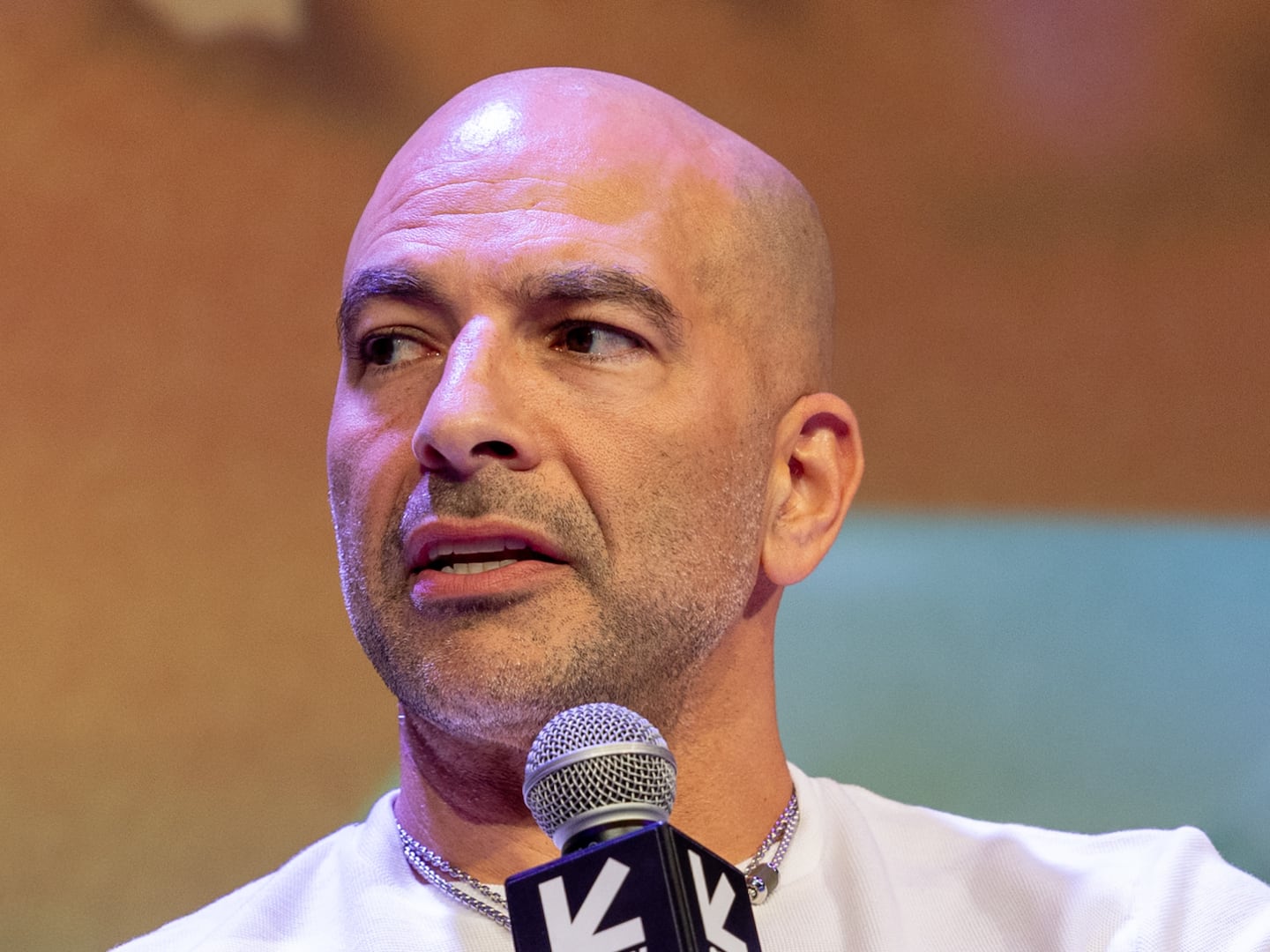In a press conference after George Zimmerman was acquitted of second-degree murder in the death of Trayvon Martin, prosecutor Angela Corey said the case has “never been about race or the right to bear arms.”

Wearing pearls and a dress that seemed more appropriate for a cocktail party, Corey had plastered on her face what the Boston Herald’s Peter Geizinis called the “weird smile of an event planner” as she said she was “so proud” of her office for “being part of the historical aspect of this case and show that the American justice system can only be done in a court of law.”
So how did she get there? Corey, 58, was chosen by Florida Gov. Rick Scott in March 2012 as special prosecutor to investigate whether charges should be brought against Zimmerman in the shooting death of 17-year-old Martin after police had decided not to charge the 29-year-old self-appointed neighborhood-watch volunteer. On February 26, 2012, Zimmerman shot and killed the teenager after deciding he was a threat and later claimed he had acted in self-defense under Florida’s Stand Your Ground law. After a national outcry, Scott appointed Corey to investigate.
The granddaughter of Syrian immigrants, Corey is a Jacksonville native. She studied law at the University of Jacksonville and became an assistant state’s attorney in 1981 but was fired in 2006 after an incident with then–state attorney Harry Shorstein. In 2008, she ran against Shorstein’s chosen successor—and won.
In her time in office, she’s become known for her tough-as-nails charges. Overall crime has gone down under Corey in Jacksonville’s Duval County, but the jail population has grown due to her “aggressive style as prosecutor,” criminologist Michael Hallet told Reuters in 2012.
In 25 years as Florida’s assistant state attorney, Corey prosecuted 65 homicide cases. Shortly before issuing charges against Zimmerman, Corey told Reuters in April 2012, “You can’t worry about the consequences if you’re doing the right thing. If you’re going to commit to doing the right thing for the right reasons, consequences have to fall where they may.”
Until Zimmerman’s trial, she was arguably most famous for the Cristian Fernandez case. Fernandez was 12 years old when he was charged with first-degree murder as an adult in March 2011 in the beating death of his 2-year-old brother, David Galarraga, facing a possible life sentence. The youngest person to ever get that charge as an adult, Fernandez eventually pleaded guilty to manslaughter in February 2013 and received juvenile sanctions.
Fernandez’s mother, Biannela Susana, later pleaded guilty to aggravated manslaughter for leaving her 12-year-old alone with David and another sibling and for waiting more than eight hours before taking David to the hospital. The charges against the 12-year-old attracted many critics, especially as Fernandez said he didn’t intentionally kill his brother and a judge ruled that he didn’t understand his Miranda rights when he confessed.
But Corey staunchly defended her decision to prosecute the charges in the Fernandez case, insisting that the “brutal infliction” of injuries on David justified the first-degree murder charge and that the beating was “not an accident.”
In a 2010 case, Corey’s office charged Marissa Alexander, 31, with aggravated assault with a deadly weapon after Alexander fired a shot—which she said was a warning shot—at her estranged husband, who had a history of domestic abuse. No one was injured in the incident, and Alexander chose to take the case to trial under the state’s Stand Your Ground law, the same law Zimmerman invoked, rather than take a plea deal that Corey said would have resulted in a three-year prison sentence. Alexander insisted at trial that she felt her life was in danger and that if she had not fired the warning shot she “would not be here.”
Alexander, who is African-American, was found guilty on three counts and sentenced to 20 years in prison, a mandatory minimum sentence the judge said he had little control over. Corey was confronted by U.S. Rep. Corrine Brown after the sentencing, with Brown saying Corey had overcharged Alexander. Corey, however, insisted the charges were fair.
“When she [Alexander] discharges a firearm in the direction of a human being, the Legislature says it’s dangerous,” Corey told Brown. “And one of the reasons is because the bullet went through the wall where one of the children was standing. It happened to deflect up into the ceiling, but if it had deflected down, it could have hit one of the children.”
As for Zimmerman, some said his case might have gone the other way had he been charged with manslaughter, but Corey insisted on the second-degree murder charges. Corey said in a press conference after Zimmerman’s trial that the state had charged him with second-degree murder because the crime “fit the bill of second-degree murder.”
“We charged what we believed we could prove,” Corey said.
Harvard Law professor Alan Dershowitz criticized her decision to charge Zimmerman with second-degree murder, saying she had acted unethically by omitting the evidence of Zimmerman’s injuries during the incident with Martin in the probable-cause affidavit. According to Dershowitz, Corey called Harvard Law School and threatened to sue to the school for libel for his comments.
During deliberations, the jury had asked for clarification on manslaughter charges, but Judge Debra Nelson asked them to come back with a more specific question. Jurors instead decided to keep deliberating—and returned with the not-guilty verdict a few hours later.






